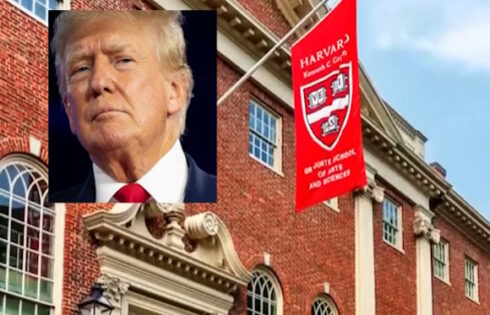
UPDATED
Professors to appeal to state attorney general to intervene, lay groundwork for vote of no confidence
Faculty at the University of Tulsa are trying desperately to halt a massive restructuring at the school that slashes its humanities programs in favor of a new emphasis on STEM and business majors.
Earlier this month the professors said they would appeal to the state’s attorney general to intervene and stop the restructuring, and last Thursday the faculty senate voted 30 to 13 to pass a resolution that lays the groundwork for a vote of no confidence in President Gerard Clancy.
One of the scholars’ biggest points of contention is the apparent hypocrisy in campus leadership’s priorities, and in an ironic twist, the road leads to Bob Dylan — because even as the university champions one of the most iconic singer-songwriters in history it is also slashing its music program.
In 2016, the George Kaiser Family Foundation, a major donor to the private university, purchased the much-coveted archive of legendary folk singer Bob Dylan. While Dylan has virtually no connection to Oklahoma, the foundation paid up to $20 million for the singer’s papers and tapes. This spring, the first Dylan exhibit was finally unveiled at the Gilcrease Museum.
Acquisition of the Dylan archive has become one of the sticking points in a battle over the tiny school’s academic soul. At a time when the university has freely obtained an attractive yet costly cultural touchstone, it has also working to completely remake the university by drastically cutting degree programs in the liberal arts and humanities. (Tulsa has about 4,400 students and is among the smallest schools participating in Division I sports.)
In exchange, the school would see an increased focus on degrees in engineering, computer science, and business disciplines, which board members argue will help students gain employment in positions today’s job market demands.
The Tulsa Board of Trustees has moved forward with its proposed “True Commitment” plan, which will eliminate programs in philosophy, religion, fine arts (dance, musical theater, theater, film scoring, musical performance), languages (Greek, Latin, Chinese, German, French, and Russian), and condense departments into fewer major offerings.
The School of Fine Arts and Media is slated to reorganize 20 programs into ten; in the Division of Humanities, 28 degree programs will become 13. The Social Sciences departments (economics, political science, sociology, psychology, education) will drop to 13 from 21.
In an email to The College Fix, university spokeswoman Gail Ellis defended the acquisition of the Dylan archive, noting that the university no longer owns any portion of the archive and is not out a “single dime” from its initial purchase. Ellis emphasized the attraction of the much-coveted collection to campus, saying “scholars from around the world conduct research at the archive.”
Tulsa is also home to the archives of Dylan’s idol, Oklahoma native Woody Guthrie, and Dylan has said he was happy his materials would be housed “with the works of Woody Guthrie and especially alongside all the valuable artifacts from the Native American nations.”
But some see Tulsa’s investment in an artist with few ties to Oklahoma as just another example of the administration losing its focus and having misguided spending priorities.
“Since 2010 – and perhaps even before that – TU’s leadership has been captivated with the idea of entering into public-private partnerships such as the operation of the Gilcrease Museum and the Bob Dylan Archives,” said former TU Visiting Associate Professor Julianne Romanello in an e-mail to The Fix.
“These ‘P3s’ are all the rage now, I’ve come to learn, but what’s popular isn’t always prudent, and I think this is certainly the case for TU’s baffling expansions into the public sector,” said Romanello, who is a member of the concerned faculty group opposing the restructuring plan.
“No one seems to know how, precisely, these agreements work in terms of the university’s core mission and institutional capacity, let alone its finances.”
To these concerned faculty members, it is the arts, humanities, and social science majors that set prestigious four-year universities apart from community colleges or vocational schools.
Serious four-year institutions, they argue, “offer a wide range of undergraduate and graduate programs across the humanities, social sciences, natural sciences, and the arts, and whose faculty are active scholars as well as accomplished teachers,” they stated in their letter to Attorney General Mike Hunter.
In their appeal, the concerned professors argue the restructuring will eliminate 40 percent of TU’s academic programs; the board counters that even if the changes were implemented immediately, only six percent of the school’s students would be affected.
Professors ask Hunter to pause the implementation of the restructuring so they can give their input on the plan.
TU philosophy Professor Jacob Howland, a sharp critic of the proposed restructuring, said the plan “guts the humanities and natural sciences” at the university. In an e-mail to The College Fix, Howland said the plan was “pushed through without faculty consultation, in violation of the university’s own contractually-binding policies regarding faculty governance and oversight of academic affairs.”
“Administrators based True Commitment on grossly inaccurate, tendentiously-deployed data,” Howland said. “Their claim that the reorganization was needed for financial reasons is belied by the facts: TU has an endowment of $1.1 billion, had an $18.5 million surplus in 2017, and maintains athletic programs that in recent years have run more than $10 million in the red.”
The TU board, however, claims the plan is necessary to move students into more job-ready majors.
“These changes will ensure that we meet our strategic priorities of supporting students toward timely graduation, offering them practical and professional training and concentrating resources in areas that will catalyze a culture of innovation at the university and beyond,” said the board on its reorganization website.
Ellis, the campus spokesperson, said the restructuring plan is needed because Tulsa is losing around $10,000 per student: “TU was losing money per student in programs that have not been evaluated in 10-20 years and that are far too small to be sustained.”
The plan “radically alters the landscape of our university, making us stronger and better able to respond to a changing higher education landscape,” the board stated on its website.
What’s more, President Clancy said faculty have already provided input.
“University leadership has been extraordinarily responsive to concerns from students, faculty, alumni and other stakeholders who have posed thoughtful questions or received misinformation,” he told The Fix in an e-mail. “Hundreds of emails, phone calls and face-to-face meetings have taken place.”
“Recent recommendations, including changes to academic programs, had been in the works for more than two years and were led by faculty.”
Yet Howland is especially wary of the school’s inextricable relationship with the Kaiser Foundation, whose former employees populate important positions of power at the university. Howland called George Kaiser’s influence in the city a “takeover of the city of Tulsa by an extremely wealthy and influential businessman.”
Concerned that restructuring the university to bend to the pressures of the job market will cause the school to lose its status as a prestigious research institution, Howland wrote the university has now become “a subsidiary of Tulsa’s biggest charitable foundation and an agent of the city’s corporate interests.”
But others note that with pressure from online universities and the political radicalization of humanities and social sciences growing more extreme, it makes sense for schools to move toward more market-based majors. This is especially true of small private schools like Tulsa, which charges over $53,000 per year in tuition and board.
At Powerline Blog, Steven Hayward of UC-Berkeley predicted a trend in which universities would “essentially split into two separate universities, with STEM and more practically-useful social sciences like economics (along with business management) becoming a university that understands itself entirely separate from the humanities and politicized/ideological social sciences, which will be allowed to wither and die.”
“Tulsa is now a prime exhibit,” Hayward wrote. “Sounds like it deserves to die.”
MORE: University of Tulsa slashes its liberal arts programs, prompting protests
MORE: University of Tulsa makes a play for most repressive college in the nation
IMAGE: Shutterstock.com
UPDATE: The article has been updated to clarify that while operated in part by the university, the Gilcrease Museum is not on the University of Tulsa campus, and that the Woody Guthrie archives are owned and housed by the Woody Guthrie Center in Tulsa.
Like The College Fix on Facebook / Follow us on Twitter






Please join the conversation about our stories on Facebook, Twitter, Instagram, Reddit, MeWe, Rumble, Gab, Minds and Gettr.